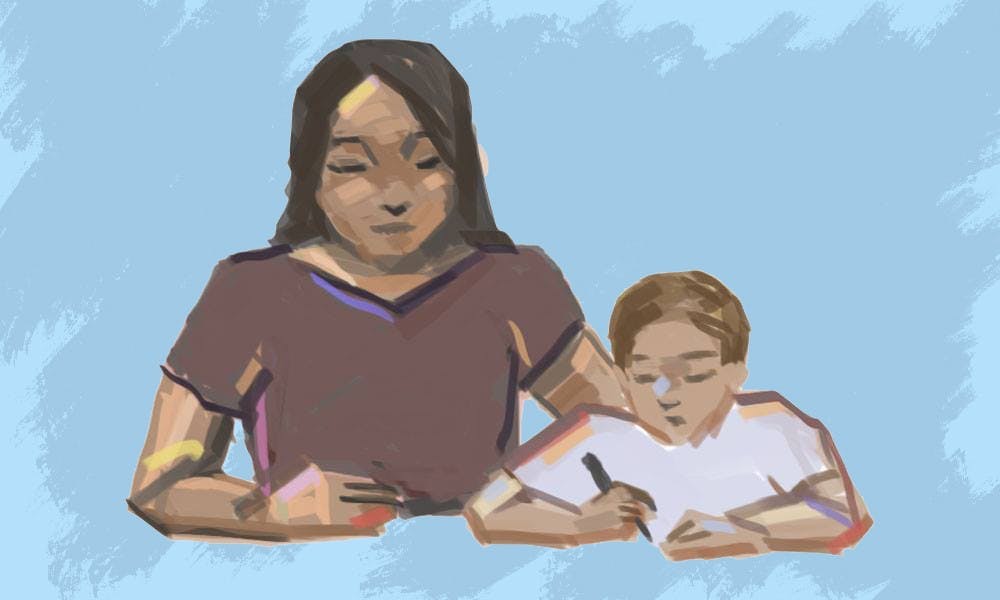
The Center for Undergraduate Research and Fellowships has awarded eight Hassenfeld Foundation Social Impact Grants, some of which aim to address the effects of the coronavirus pandemic on vulnerable communities.
The Hassenfeld Foundation Social Impact Grant awards first-years, sophomores, and juniors in the College of Arts and Sciences up to $5,000 to pursue a social impact project with real-world outcomes. This spring, half of the grants awarded by CURF are related to coronavirus relief, with the other half dedicated to various community engagement endeavors.
Ann Vernon-Grey, Senior Associate Director for Undergraduate Research at CURF, said the program looks for data-driven and evidence-based proposals to determine grant recipients. To be selected for the grant, however, a project must also have the demonstrated potential to create social change.
“In order to do that, [the project] needs to be based in some sort of rigorous research, but that’s not what we want them to demonstrate at the end. We want them to demonstrate what impact they’ve made," Dr. Vernon-Grey said.
Rising College and Wharton junior Ayina Anyachebelu’s Hassenfeld Social Impact project, which received the CURF grant, focuses on the difficulties of homeschooling children during the pandemic, and aims to support education for families who are struggling financially due to the coronavirus.
Anyachebelu said that with the grant, she will create a virtual platform to connect Philadelphia families with local college students to receive free tutoring and mentoring services. She said she hopes to partner with the West Philadelphia Tutoring Project and other tutoring programs at Penn that usually send volunteers to deliver these services in person.
After returning home early from her spring study abroad program in Spain, Anyachebelu said she spoke to a Philadelphia family whose children she used to tutor, and learned that they were experiencing financial difficulties because of the pandemic. She said the interaction inspired her to work on this project to help families educate their children at home while dealing with financial hardship.
“I was really thinking about a lot of parents that maybe can’t teach their kids the things they learn in school,” Anyachebelu said. “[Philadelphia] has a lot of universities, so there are many tutoring programs like the West Philadelphia Tutoring Project and other things like that, and those parents kind of relied on that as their avenue for their kids to have educational support and mentorship.”
Two other teams selected to receive the grant plan to focus on education efforts unrelated to the coronavirus. Rising College sophomores Mennal Zafar and Ryan Afreen received the grant for their First Mentors program, which will offer free tutoring, college counseling, and mentorship to Bangladeshi immigrant students at Moder Patshala, a non-profit in West Philadelphia.
Afreen said that through First Mentors, Penn students will provide SAT and ACT tutoring to students at Moder Patshala. Their proposed program will also include educational workshops on essay writing, scholarship and financial aid applications, and mental health.
Afreen said mentors will also assist Moder Patshala students with college visits and getting in contact with student representatives from other universities.
“Even though we’re Penn students who are providing this assistance, if someone from Moder Patshala wants to go to [Massachusetts Institute of Technology] and wants to speak to a college student from MIT, we as First Mentors, one of our jobs is to connect the student with a college representative from their desired college,” Afreen said.
Zafar and Afreen both identify as South Asian, Muslim, and first-generation college students. Afreen said she hopes that First Mentors will help ensure that Moder Patshala students are not discriminated against during the college application process because of their personal financial backgrounds.
Zafar and Afreen will use the Hassenfeld Foundation grant money to pay for transportation for First Mentors and Moder Patshala students for tutoring and college visits, and to fund their programming and workshops.
The second team of grant recipients, composed of rising College sophomores Arsam Shaikh, Jhohanna Perez, and Abenezer Lemma, received the grant for their club focused on global human rights, titled 'Awareness Against Current Transgressions.'
Shaikh said AACT will focus primarily on the issue of Uighur Muslim re-education camps in China. AACT will provide scholarships for 15 to 20 students at Ana Care and Education, a school in Fairfax, Virginia, to allow them to take classes in Uighur language and culture, Shaikh said. Ana Care and Education is the one of the only independent educational institutions in the nation that offers Uighur language courses and programs to students.
Shaikh said Penn students in the club will also send care packages — filled with hygiene products, school supplies, and other essential items — to people who were previously and currently living in Turkey. Other students can also volunteer to serve as mentors for One Voice, One Cause, he added, to advise high school students in launching their own projects that address human rights issues in their communities.
Lemma said the final component of AACT project is hosting free online program for high school students titled 'One Voice, One Cause' which will bring professors and human rights activists to give virtual presentations on global human rights crises. This aspect of the program will begin on June 24, and last for eight weeks.
“We’re going to connect these high school students to [the lecturers], and we want them to learn how to alleviate the issues that are affecting their own communities,” Lemma said.
Perez said AACT will also hold weekly virtual discussion sessions for high school students in the program.
Perez, Shaikh, and Lemma, who are all immigrants to the United States, were motivated to apply for the CURF grant and create this program based on their knowledge of human rights crises in their respective home countries.
The Daily Pennsylvanian is an independent, student-run newspaper. Please consider making a donation to support the coverage that shapes the University. Your generosity ensures a future of strong journalism at Penn.
Donate






